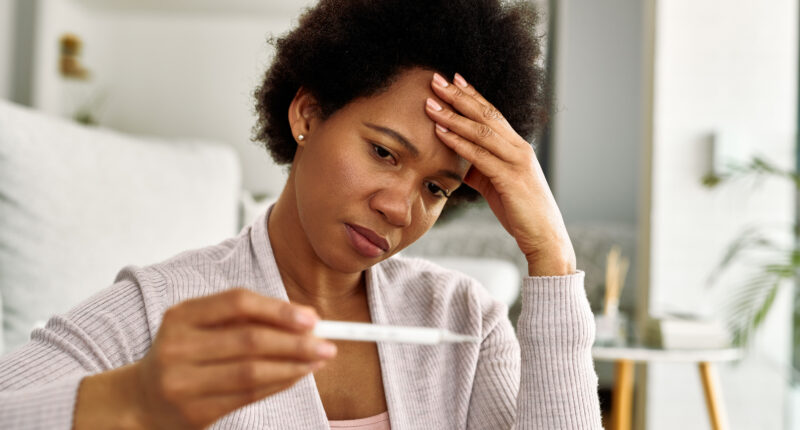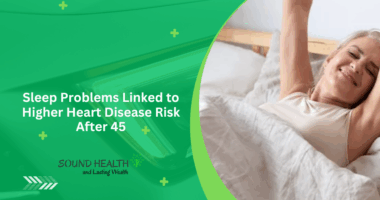Stopping hormonal birth control can bring relief for many, but for some, it triggers a challenging phase known as post-birth control syndrome (PBCS). This condition involves a range of physical and emotional symptoms that emerge as the body adjusts to the sudden absence of synthetic hormones. Though not an officially recognized medical diagnosis, PBCS is a real phenomenon experienced by many individuals who discontinue hormonal contraceptives like the pill, patch, or ring. Understanding what PBCS entails, its signs, and how to manage it is essential for those navigating this transition.

What is Post-Birth Control Syndrome?
Post-birth control syndrome refers to the collection of symptoms some people face after stopping hormonal birth control. These symptoms usually arise within four to six months of discontinuation and reflect the body’s effort to recalibrate its natural hormone production after being suppressed by synthetic hormones. Hormonal birth control typically delivers steady doses of estrogen and progestin, which prevent ovulation and mask natural hormonal fluctuations that cause common menstrual symptoms. When this hormonal steady state suddenly ends, the body’s systems can become unsettled, leading to a range of issues including irregular menstrual cycles and mood changes. Experts like Dr. Jessica Shepherd, an OB-GYN, confirm that while PBCS can be distressing, it often represents the body’s adjustment phase as normal cycles resume.
Signs Of Post-Birth Control Syndrome: What to Watch For
Symptoms of PBCS are varied, affecting physical health, mood, and energy levels. Recognizing these signs is important for understanding what the body is signaling during this transition period. Common symptoms include:
Irregular or absent periods (amenorrhea) lasting an average of 3-6 months
Acne flare-ups, including cystic acne and rosacea
Hair thinning or hair loss
Mood disturbances such as anxiety, depression, and sudden mood swings
Breast tenderness and changes in libido
Headaches and migraines
Bloating, gas, and digestive irregularities
Fatigue and difficulty sleeping
Studies and clinical reports indicate that roughly 20% of women who stop hormonal birth control experience these symptoms to varying degrees. For many, these disruptions wane within several months, but others may face more persistent effects that require medical attention. As Dr. Aviva Romm explains, the loss of steady synthetic hormones means the body must rebuild its natural hormonal rhythm, which can temporarily destabilize bodily functions.
How To Manage Post-Birth Control Syndrome – Explained by Dr. Shepherd
Managing PBCS involves supportive care aimed at easing symptoms while allowing the body to readjust naturally. Dr. Shepherd and other specialists emphasize a multi-faceted approach:
Lifestyle Adjustments: Prioritizing sleep, managing stress through relaxation exercises like yoga or meditation, and maintaining regular physical activity can help stabilize mood and energy.
Nutrition Support: A balanced diet rich in protein, fiber, and healthy fats is critical. Supplementing vitamins and minerals often depleted by hormonal contraceptives—such as folic acid, magnesium, zinc, and vitamins B-complex, C, and E—can aid recovery.
Symptom-Specific Treatments: For acne and skin changes, dermatological interventions including prescription medications may be necessary. Mood symptoms may benefit from counseling or pharmacological support when appropriate.
Medical Evaluation: It’s vital to consult healthcare professionals for hormone level testing to rule out underlying conditions or assess if targeted hormone therapy might be beneficial.
Dr. Shepherd underscores that patience is essential: the body’s recovery is gradual, and while symptoms can feel overwhelming, they often improve with time and care.
When To See A Doctor
Professional evaluation is recommended if symptoms severely affect quality of life or persist beyond six months after stopping birth control. Immediate medical advice is also crucial if menstruation does not resume within this time, especially for individuals aiming to conceive. Symptoms such as sudden, severe depression or hair loss should never be ignored and warrant prompt attention. A healthcare provider can tailor treatment plans, including lifestyle guidance, supplement recommendations, and, if needed, hormone therapy to support hormonal balance restoration.
Understanding and navigating post-birth control syndrome with informed care can empower individuals to manage this transition more comfortably and regain control over their well-being. While challenging, PBCS often marks the body’s return to natural function, heralding a new phase of hormonal health.










